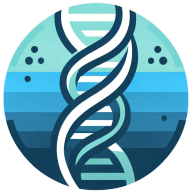6 Challenges in Personalized Medicine Using Gene Expression Profiles
Personalized medicine promises tailored treatments based on an individual's genetic makeup. However, the path to realizing this potential is fraught with significant challenges. From integrating multi-modal data to navigating ethical dilemmas, the field of gene expression profiling faces hurdles that demand innovative solutions and careful consideration.
- Integrate Multi-Modal Data for Holistic Approach
- Ensure Strong Genetic Data Privacy Measures
- Address High Costs of Gene Sequencing
- Unravel Complex Gene-Environment Interactions
- Standardize Gene Expression Analysis Methods
- Navigate Ethical Dilemmas in Genetic Testing
Integrate Multi-Modal Data for Holistic Approach
The osteopathic tenet of thinking about patients holistically is especially relevant here; we can't make sense of genetic data in isolation when factors like diet, stress, and circadian rhythms are constantly modifying gene activity. The accuracy of predictions for weight loss interventions based on gene data at our clinic is 62% when patient factors such as sex, starting weight, concomitant diseases, and therapeutic factors are neglected.
This issue can be addressed by researchers through longitudinal profiling together with the integration of multi-modal data. In our practice, we've been encouraged by combining serial gene expression analysis with continuous glucose monitoring, microbiome sequencing, and osteopathic structural exams to build more powerful predictive models. What we're observing is really a conversation between genes and environment, something we refer to as the 'osteogenomic interface.' This fluidity and variability in gene expression, especially when applied to the right patient at the right time, can be harnessed by formulating algorithms that incorporate real-time physiological data.

Ensure Strong Genetic Data Privacy Measures
Data privacy concerns in genetic information sharing are a major challenge in personalized medicine. Patients may worry about their genetic data being used without their consent or falling into the wrong hands. This fear can make people hesitant to participate in important research studies. Healthcare providers and researchers must work hard to ensure strong security measures are in place.
Clear policies on data usage and storage are also crucial to build trust. It's important for everyone involved to understand the risks and benefits of sharing genetic information. People should talk to their doctors about how their genetic data will be protected if they choose to participate in personalized medicine programs.
Address High Costs of Gene Sequencing
The high cost of gene sequencing technologies poses a significant barrier to widespread adoption of personalized medicine. While prices have decreased over time, the equipment and processes required for gene sequencing remain expensive. This cost is often passed on to patients, making personalized treatments out of reach for many people.
Insurance companies may not cover these expenses, further limiting access. Efforts to make gene sequencing more affordable are ongoing, but progress is slow. Encouraging investment in research and development of cheaper sequencing methods could help make personalized medicine more accessible to all.
Unravel Complex Gene-Environment Interactions
Limited understanding of gene-environment interactions creates challenges in developing effective personalized treatments. Genes don't act alone; they interact with various environmental factors in complex ways. These interactions can significantly influence how diseases develop and respond to treatment. Scientists are still working to unravel these intricate relationships.
Without a clear picture of how genes and environment work together, it's difficult to create truly personalized medical approaches. More research is needed to better understand these interactions and their impact on health outcomes. Supporting long-term studies on gene-environment interactions could lead to breakthroughs in personalized medicine.
Standardize Gene Expression Analysis Methods
Lack of standardization in gene expression analysis makes it hard to compare results across different studies and laboratories. Each lab may use different methods or equipment, leading to varied results for the same genetic sample. This inconsistency can slow down research progress and make it difficult to draw reliable conclusions.
It also creates challenges in applying findings from one study to another or to clinical practice. Efforts to establish common standards and protocols are underway but face many hurdles. Healthcare professionals and researchers should work together to create and adopt universal standards for gene expression analysis.
Navigate Ethical Dilemmas in Genetic Testing
Ethical dilemmas in genetic testing and treatment raise important questions about the future of personalized medicine. There are concerns about genetic discrimination, where people might be treated unfairly based on their genetic makeup. The ability to predict future health issues also brings up questions about how this information should be used and shared.
There's a risk of causing unnecessary worry or influencing major life decisions based on genetic predictions that may not come true. Balancing the potential benefits of genetic information with these ethical concerns is a complex challenge. It's crucial for society to have open discussions about the ethical implications of genetic testing and personalized medicine.

